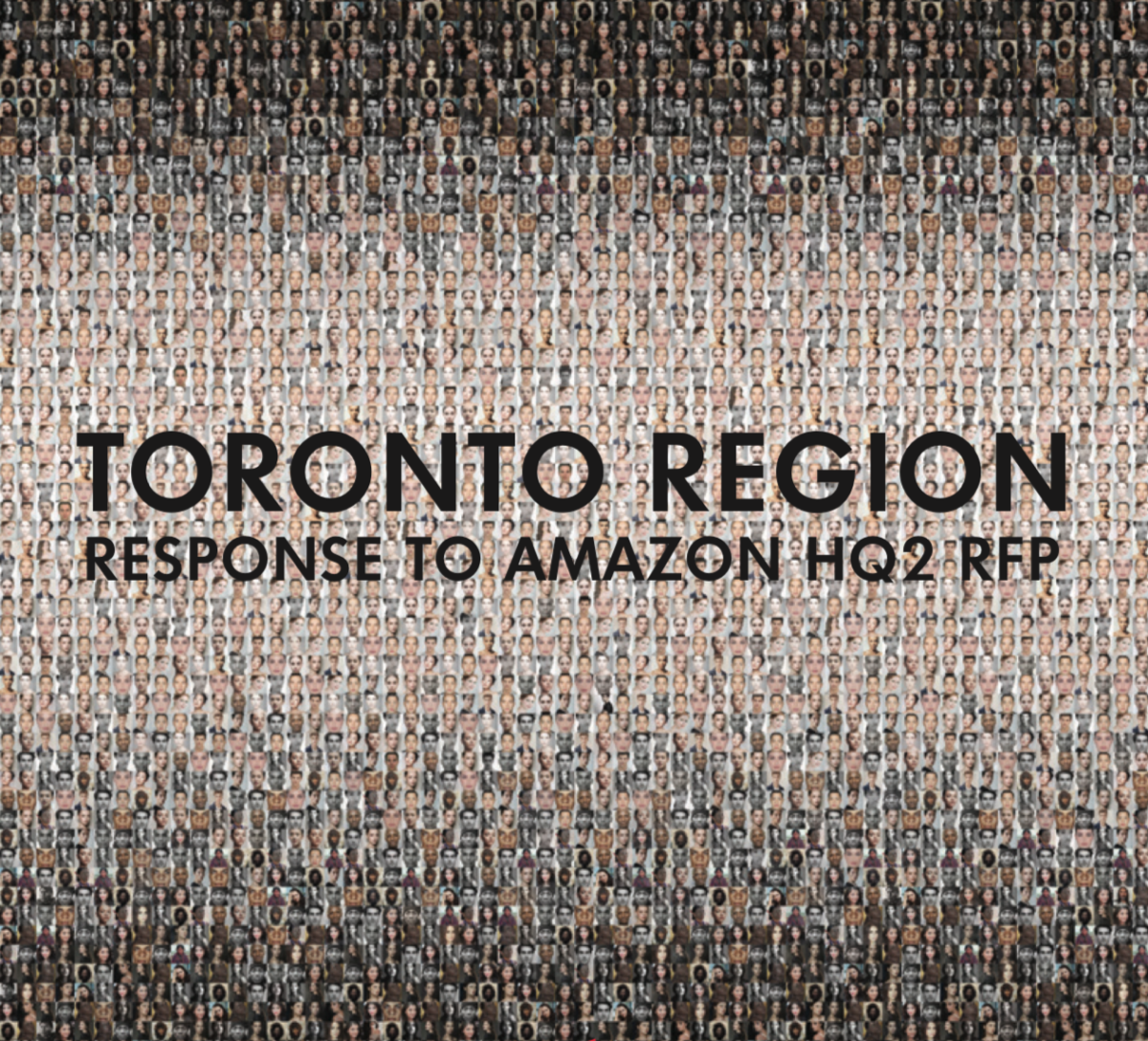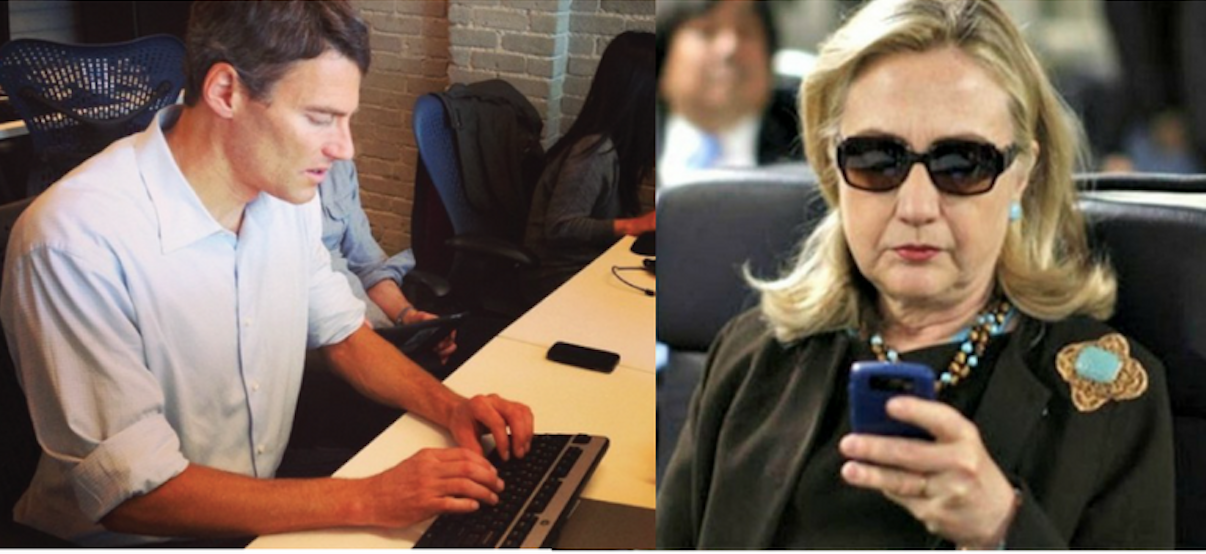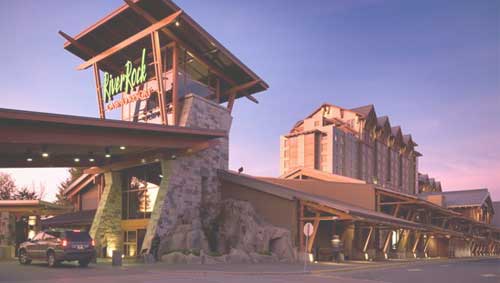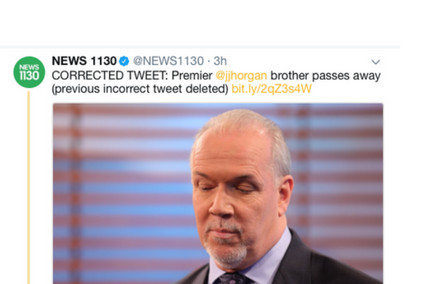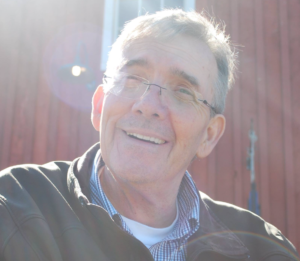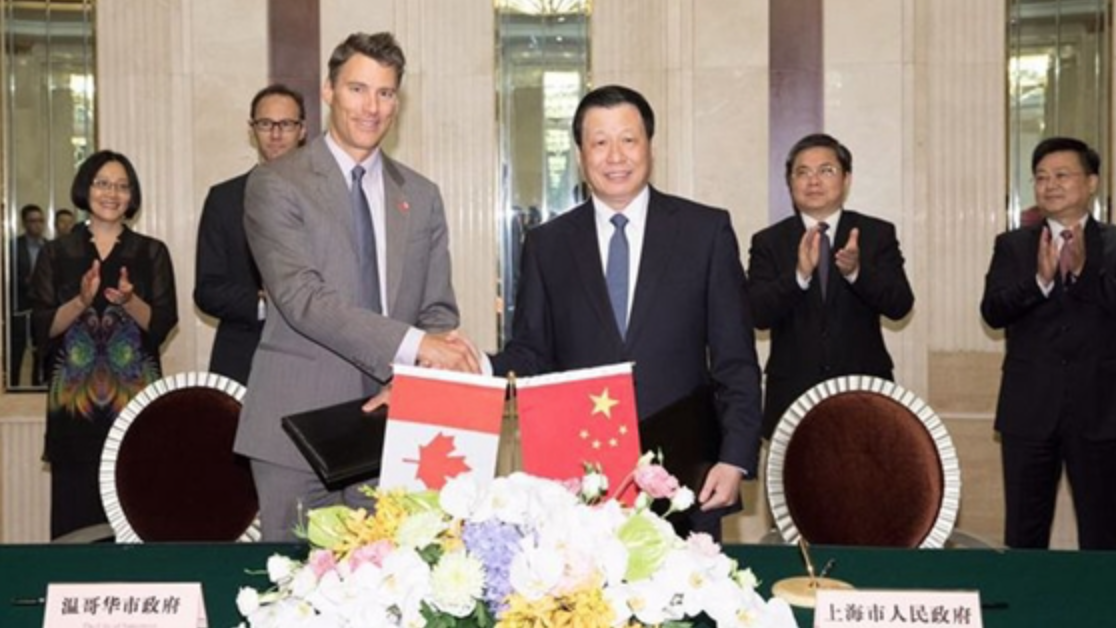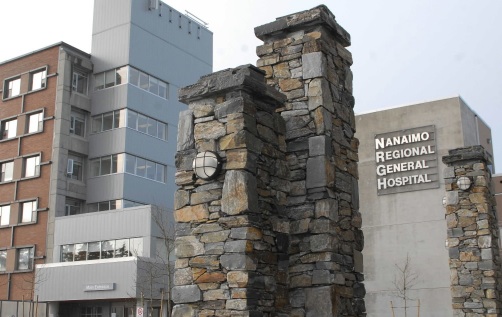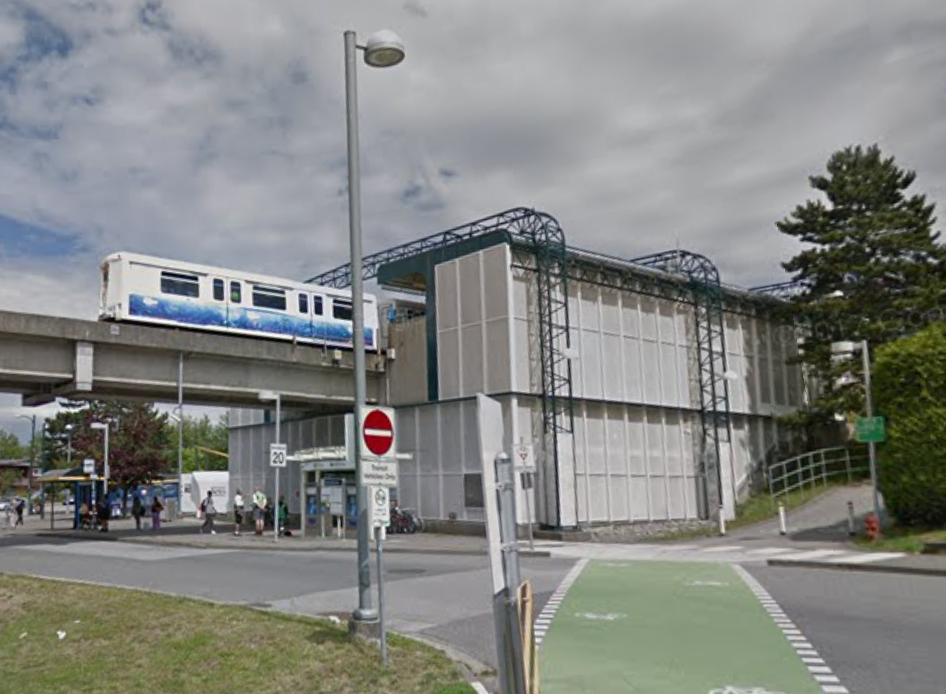Bob Mackin
Vision Vancouver raised more than $220,000 in corporate donations for last October’s civic by-election, mainly from a small group of real estate tycoons.

Cardona (left) and Robertson (Vision)
In Elections BC campaign finance returns published Jan. 15, the majority party on city council reported receiving $25,000 each from the De Cotiis family’s Onni and Amacon and a combined $24,500 from four of Concord Pacific tycoon Terry Hui’s companies.
The $25,000 donation from Onni president Rossano De Cotiis was dated Oct. 16, two days after the Oct. 14 vote. Three days later, on Oct. 19, De Cotiis agreed in-writing to give city hall part of Onni’s Pearson-Dogwood lands in Marpole for a temporary modular housing project to house homeless people for $1 a year, until 2022.
Onni’s chief of staff is Duncan Wlodarczak, who left Vision Vancouver and joined Rossano De Cotiis’s company last May. Wlodarczak spent three-and-a-half years working for Vision in a variety of positions, from candidate support and community outreach to operations and partnerships.
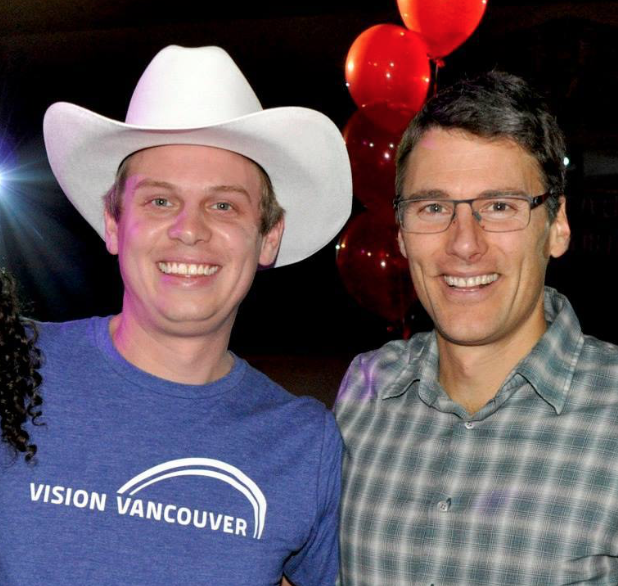
Wlodarczak (left) and Robertson (Facebook)
Onni received an illegal $1.56 million waiver on development cost levies for its 43-storey Charleson condo tower in Yaletown. Onni repaid the funds in late 2016 after Global News discovered what the Vision Vancouver-dominated city hall called a mistake. Last spring, city manager Sadhu Johnston recommended not sending the matter to an outside firm for investigation.
Other big money real estate donors to Vision’s war chest included Coromandel ($35,000), Shato Holdings ($25,000), Rize Alliance ($20,000), and Westbank Projects ($15,000).
Vancouver Taxi Association ($10,000) and Vision bagman Joel Solomon’s Interdependent Investments ($2,500) were the only non-real estate donations of the 16.
Vision also reported $29,400 from unions and $26,225 from individuals. Of the $278,125 raised, it spent $77,351.60 on candidate Diego Cardona’s fifth-place campaign. The reports do not show how much Vision paid to resolve Cardona’s $1,000-plus in traffic fines, which theBreaker exclusively revealed.
The rest of Vision’s fundraising revenue, $180,487.06, went to winning three seats on the NDP-resurrected school board. The previous BC Liberal government fired the school board in 2016 over a budget dispute.
NPA newcomer Hector Bremner, a lobbyist and former aide to Rich Coleman, won the city council seat vacated by Vision’s Geoff Meggs. Meggs quit to become NDP Premier John Horgan’s chief of staff. Turnout was a disappointing 11%.
The by-election was the last in Vancouver before the NDP provincial government amended municipal campaign finance laws to ban corporate and union donations and set a $1,200 donation limit by individuals.
In the 2014 general election, nearly all major parties that fielded candidates, including Vision and the NPA, released preliminary lists of donors before election day. In 2017, Vision and the NPA were the only two that refused to show their preliminary fundraising lists.
NPA reported $100,012.45 income and spent $78,965.23 on Bremner’s campaign. It said it received $33,250 in corporate donors and $20,450 from individuals, and reported $46,312.45 in transfers from the party’s account.
Bremner’s biggest single donor, at $10,000, was longtime BC Liberal bagman and NPA supporter Peter Brown. Three Terry Hui companies donated a combined $8,000. Polygon Homes, Stubos Capital and Ron Toigo’s Italian Oven Restaurant gave $5,000 each, said the NPA return.
Robertson revealed Jan. 10 that he would not run for a fourth term as Vancouver mayor. He denied that his failure to solve the city’s affordable housing crisis under his nine-year reign was the reason.
Vision Vancouver remains the majority party on city council with six seats, followed by the NPA (four) and Greens (one). 
UPDATE – Feb. 9: Meanwhile, the man who ran Vision’s office and fundraising machine from March 2012 to July 2017 has resurfaced with another branch of the De Cotiis famiglia.
The party’s former executive director, Stepan Vdovine, had a cup of coffee last summer with the Horgan Horde, as an aide to Tourism Minister Lisa Beare. His wife, Mira Oreck, is Horgan’s Vancouver-based director of stakeholder relations.
Vdovine’s LinkedIn profile says he joined Amacon Developments as director of business development this month. The residential, commercial and hospitality developer and landlord owned by siblings Lilliana, Teresa, Donato, Luca and Marcello De Cotiis.
The next civic election is Oct. 20.
Support theBreaker.news for as low as $2 a month on Patreon. Find out how. Click here.
Bob Mackin
Vision Vancouver raised more than $220,000






